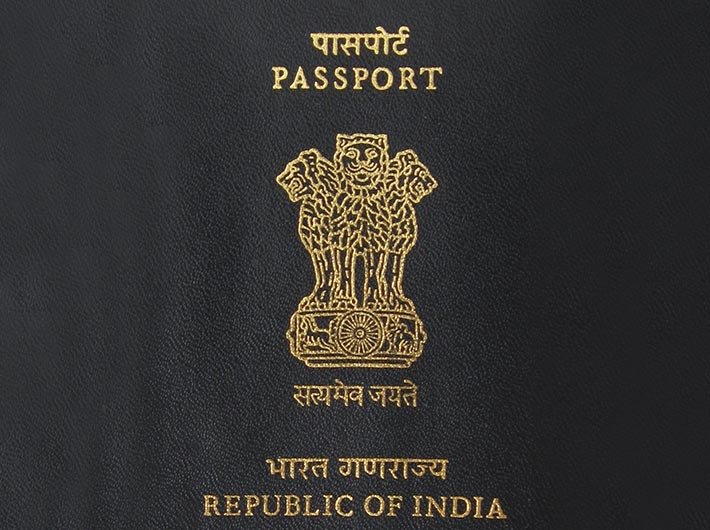Getting a passport takes time, often a lot of time. To make it quick, the government had launched ‘Passport Seva Project’ (PSP) as a Mission Mode Project (MMP) under the National e-Governance Plan (NeGP). That, however, has failed to provide much relief to the applicants, according to a CAG report.
In a union civil performance audit report tabled on April 29, the supreme audit institution of India has found delays at various stages. Here are the highlights of its findings:
“There are various steps involved in the process of obtaining Passport such as getting online appointment, visiting a Passport Seva Kendra (PSK), police verification, printing and dispatch. We observed delays at all stages of the process which are enumerated below:
· The appointment given to persons seeking issue of passport ranged from 1 to 68 days. The waiting period for giving an appointment ranged from 0-3 days in 38 PSKs, 3-10 days in 12 PSKs, 11-30 days in 17 PSKs and more than 30 days in 12 PSKs. The average time taken for police verification process was 42 days at national level in 2014 against the prescribed ceiling of 21 days.
Age-wise analysis of pending Police Verification Reports (PVRs) showed that as on 31 August 2015, out of total pending PVRs, 48 per cent were pending for more than the prescribed limit of 21 days. In seven States/UTs pendency of more than 100 days were noticed in clearance of police verification reports. The printing of passports contributed to further delays. In few Regional Passport Offices
(RPOs) pendency in printing ranged from three to eight days.
· The final step in the passport application process is the delivery of passport to the applicant by the postal department. The Ministry did not have status of delivery for 27.38 lakh dispatched passports.
· Further, the analysis of data provided by Tata Consultancy Services (TCS) revealed that average time taken in 2014 to obtain passport in India was 16 days as compared to 9 days in 2013 and only 21 percent of passports under normal category were issued within the prescribed period of three working days. In respect of RPO Delhi, the average time taken in obtaining passport was 52 days (including waiting period of getting appointment and police verification time). This was far in excess of the prescribed time limit of 24 days.”
The report notes that the waiting time for an applicant in the PSK seeking issue of passport was more than one hour while average time taken by the citizen in the PSK was 78 minutes against the prescribed time limit of 25 minutes (from token issue time to exit time) in four PSKs under RPO Delhi leading to overcrowding inside the PSKs.
Complaining about the delays may not help much, as the report notes that as per data provided by the external affairs ministry, 25 percent of total grievances received remained unattended till the end of the year. The age-wise analysis of pending grievances revealed that 41 percent of grievances were more than 60 days old which showed slow pace of redressal of grievances.
‘No refund’ option is provided to the applicants in PSP which resulted in collection of Rs 78.46 crore from 5,42,168 applicants during October 2013 to December 2014, who finally did not turn up for appointments.
Governance structure
A Master Service Agreement (MSA) was signed between the ministry and the service provider for running the PSP. The MSA prescribed a governance structure (Empowered committee, Program Management Committee) for monitoring of the PSP. CAG observed a number of issues relating to implementation of the MSA and “weak governance structure”:
· Certain clauses relating to terms of payment schedule of MSA were inconsistent and required modification.
· An amount of Rs 61.49 lakh was paid to the service provider based on achievement of Service Level Agreement1 (SLA) as per old norms of
MSA, which was not justified in view of change of system (from walk in to walk in with ARN) by the ministry, after signing of MSA. Similarly, the methodology of calculation of average time spent by citizen in PSK was changed in favour of service provider in respect of SLA 1 to 4 without proper justification.
· CAG noted weak governance as the Empowered Committee and Programme Management Committee were either not functioning or not involved in the function for which they were constituted. As a result, important changes/deviations from the service level agreement were made without adequate justification and approvals.
Recommendations
* The Ministry may analyse the reasons for interstate variations in delay in Police Verification Report (PVR) and put in place a system for monitoring along with Ministry of Home Affairs to ensure that PVR is done within 21 days as envisaged in the scheme. The Ministry may analyse the reasons for pendency at other stages of passport service process and take necessary steps to mitigate the same.
* The Ministry may examine the reasons for long waiting time at Passport Seva Kendras (PSKs) in Delhi and take effective measures to reduce it. It may also depict correct waiting time by including the waiting time between appointment time and token issue time while calculating the total time spent by citizen in PSK. The Ministry may also strengthen the mechanism of grievance redressal in a time bound manner.
* The Ministry may streamline the procedure related to refunds and publicise the same to all applicants.
* The Ministry may examine clauses of Master Service Agreement and take appropriate action to remove inconsistencies.
* The Ministry may review the mechanism of payment of reward to the SP in line with the change in the passport application system and ensure that revision in the performance parameters under Service Level Agreement should be with due justification.
* Governance structures at the Ministry level may be strengthened by ensuring regular meetings of Empowered Committee and Project Management Committee. It should also be ensured that important decisions are taken at appropriate levels only.
